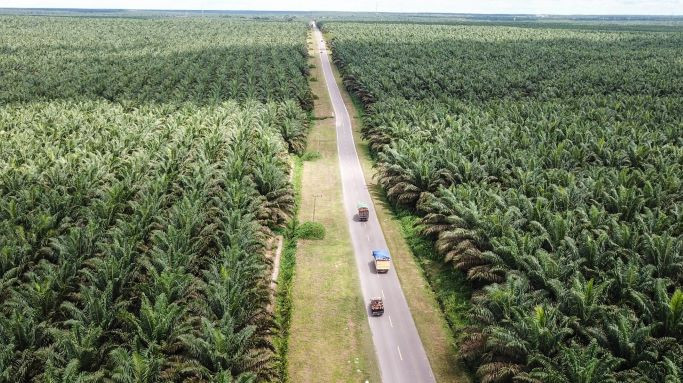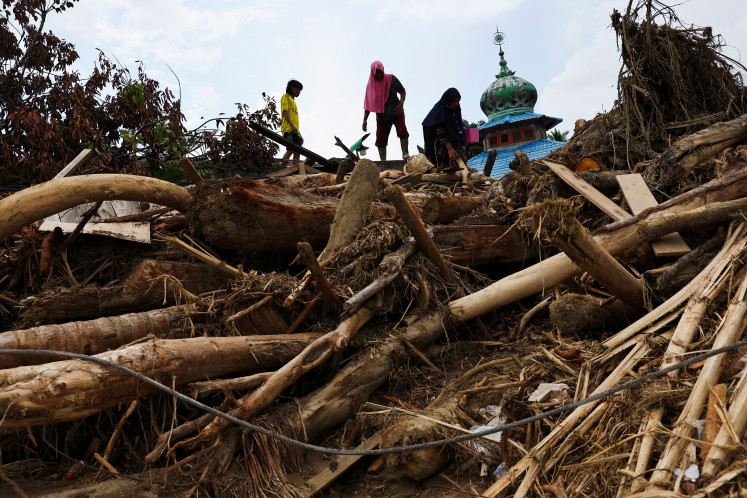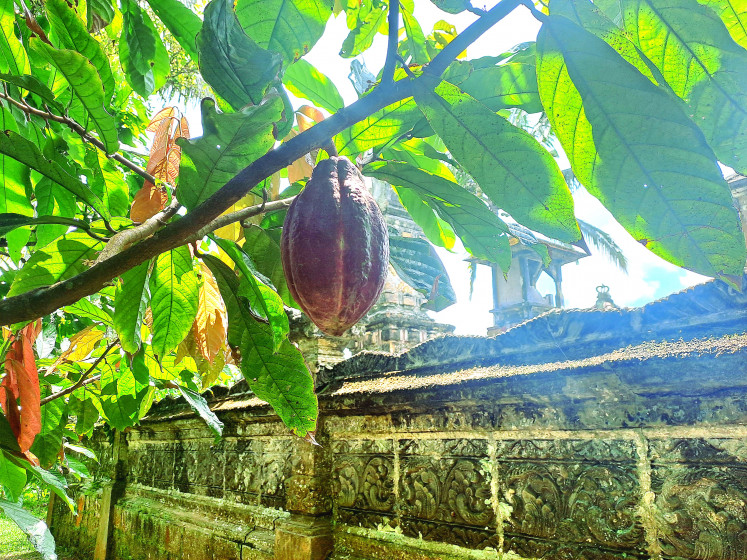Popular Reads
Top Results
Can't find what you're looking for?
View all search resultsPopular Reads
Top Results
Can't find what you're looking for?
View all search resultsTask force to settle EU, RI, Malaysia deforestation dispute
Change text size
Gift Premium Articles
to Anyone
R
esponding to the opposition of palm oil-producing countries to its deforestation stance on trade, the European Union has agreed to set up a joint task force to achieve a “win-win solution” for the European Commission, Indonesia and Malaysia.
The joint task force, involving numerous stakeholders, will focus on several commodities likely to be heavily scrutinized by the newly legislated EU Deforestation Regulation (EUDR), such as palm oil, wood, rubber, coffee and cocoa, a joint statement by the three parties said on Thursday.
Recent months have seen Kuala Lumpur and Jakarta joining forces to act as the firmest naysayers against the EUDR, a trade policy seeking to ban all imports linked to deforestation from entering the vast European market.
Arguing that the policy is “discriminatory” against developing countries with limited capacity to transform their most crucial industries within a short period of time, the two neighbors have previously declared their intention to fight the policy.
The EU, on the other hand, has repeatedly insisted that it intends only to mitigate climate change, denying claims that its policy is a form of “regulatory imperialism”, as previously described by Jakarta officials.
A lot is at stake if these disagreements remain unsettled, including the Indonesia-EU Comprehensive Economic Partnership Agreement (IEU-CEPA) and the Malaysia-EU Free Trade Agreement (FTA), with the former already scheduled to be finalized by the end of this year, just prior to Indonesia’s election year.
With these clashing interests still looming large, the three parties have agreed to settle their differences in the joint task force, which will include key government officials, associations and smallholder representatives. The first week of August will see these key actors congregate for their debut meeting, the statement added.
“The European Commission underlined that its policies respond to common international commitments. The main objective will be to ensure that Europe will not drive global deforestation through its own consumption,” the joint statement asserted.
“The joint task force [will] among other measures enhance dialogue on supply chain traceability and transparency. [...] When needed, matters may be addressed based on the country-specific approach.”
Representatives of smallholder palm oil producers will also be included in the talks, the statement specified, referencing Indonesia's previous complaints that the EUDR will injure smaller farmers with limited means to abide by the EU’s intricate paperwork requirements.
Specifically for palm oil, which remains the elephant in the room, the secretariat of the Council of Palm Oil Producing Countries (CPOPC) has been appointed to facilitate and coordinate with Jakarta and Kuala Lumpur officials, as well as with the Directorate-General for the Environment of the European Commission to ensure the dialogue progresses with desired outcomes.
“The task force will examine the situation for relevant commodities in Indonesia and Malaysia within the scope of the EUDR for the EU market,” said the statement.
Last week, members of the European Parliament International Trade Committee (INTA) visited Jakarta to meet with several key ministers, including Coordinating Economic Affairs Minister Airlangga Hartanto, Trade Minister Zulkifli Hasan and Investment Minister Bahlil Lahadalia.
Though initially meant to advance IEU-CEPA negotiations, palm talks and the EUDR overshadowed the meetings, with the EU representatives pushing for collaboration to implement the EUDR despite Jakarta’s repeated objections to the policy.
Airlangga told The Jakarta Post that among Indonesia’s priorities were more clarity on government procurement, technology preferences, equal standards on the global supply chain, the role of state-owned enterprises and local content in the manufacturing sector. These issues will most likely be addressed by the joint task force.
Combined, Indonesia and Malaysia account for 85 percent of the global output for crude palm oil (CPO), a highly versatile yet controversial commodity for its role in fueling the destruction of rainforests.










